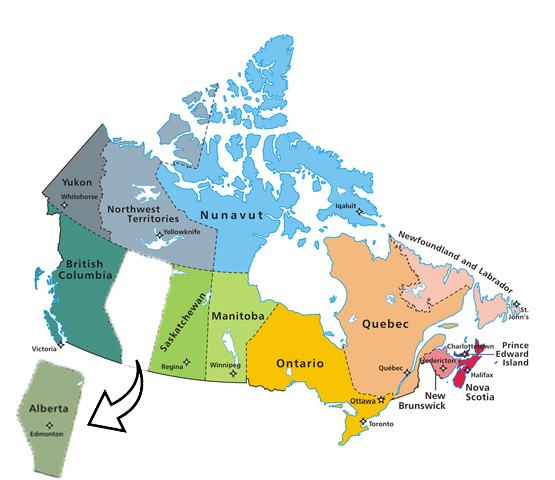

Shauna Spudik, a former University of New Brunswick student now living in Alberta, is in the middle of Wexit country.
She said she knows a lot of people in Alberta think Prime Minister Justin Trudeau doesn’t care about the province, which has fuelled the Wexit movement.
“It upsets them because Alberta plays a big role in Canada’s economy,” Spudik said.
Wexit is Alberta’s separatist party. The decision to create Wexit came after Trudeau was re-elected as prime minister in 2019. It applied to become a federal political party on Nov. 4. Elections Canada received the application but has yet to approve it.
Spudik said Albertans feel abandoned by the Trudeau government.
The Liberals have committed to reducing greenhouse gas emissions to 30 per cent below 2005 levels by 2030. They have also introduced a federal carbon tax.
Revenue from oil and gas extraction represented 28 per cent of Alberta’s GDP in 2016, and six per cent of Albertans are employed in the mining, oil and gas extraction industry.
“Now there’s a lot of talk about eliminating oil and gas,” Spudik said.
“If that happens, Alberta’s economy would be non-existent.”
Trudeau also bought the Trans Mountain Pipeline and wants to complete it.
Still, Spudik said the idea of Alberta separating from Canada is ridiculous. She understands Albertans are upset but doesn’t think it’s enough to forget about Canadian culture and heritage. She said she would rather wait four years for the next election than have the province leave the rest of Canada. For now, Spudik said she’d like to see Trudeau give more attention to Alberta.
“It would be nice to see [Trudeau] visit here and talk with random Albertans of different economic status to see the sort of impact his decisions make for us,” she said.
Shaun Narine, a political science professor at St. Thomas University, said Alberta’s dependence on oil and gas is what sparked Wexit.
“[Albertans] are extremely angry by any measures that might be taken that would actually lead to the gradual rolling down of the oil and gas economy.”
Narine said those who support Wexit want to create more pipelines and invest more in the oil sector to help Alberta’s economy. However, Narine said these investments are destructive to the climate.
“I think it’s expecting the rest of the country to commit suicide,” he said.
In order to support Alberta’s economy and continue the fight against climate change, Narine said the other provinces will have to step up and help Alberta while they move away from an oil and gas-based industry.
Sushant Giri, a fourth-year UNB chemical engineering student from Alberta, said the oil and gas industry is how families survive in Alberta. He said Albertans are trying to make ends meet and for the Canadian government to say oil and gas is bad for the environment, isn’t considering the families who rely on the industry.
Wilson Kennedy-Mills, a third-year English student at STU, said one of the reasons the separatist movement formed is because of Alberta’s strong conservative values and its history with the two Trudeau governments.
“Ever since 2015, when Trudeau was elected, I can remember a complaint about how he was going to treat Alberta the way his father did,” he said.
On Sept. 4, 1973, Prime Minister Pierre Trudeau asked the Western provinces to agree to a freeze on oil price. He then imposed a 40-cent tax on every barrel of Canadian oil exported to the United States.
Kennedy-Mills said he understands how Alberta feels but doesn’t think separatism is the way to go. He said since he’s born in Alberta, he worries about what would happen if the province were too separate.
“My birth certificate is from Alberta. Will that mean I’m no longer a Canadian citizen?”
